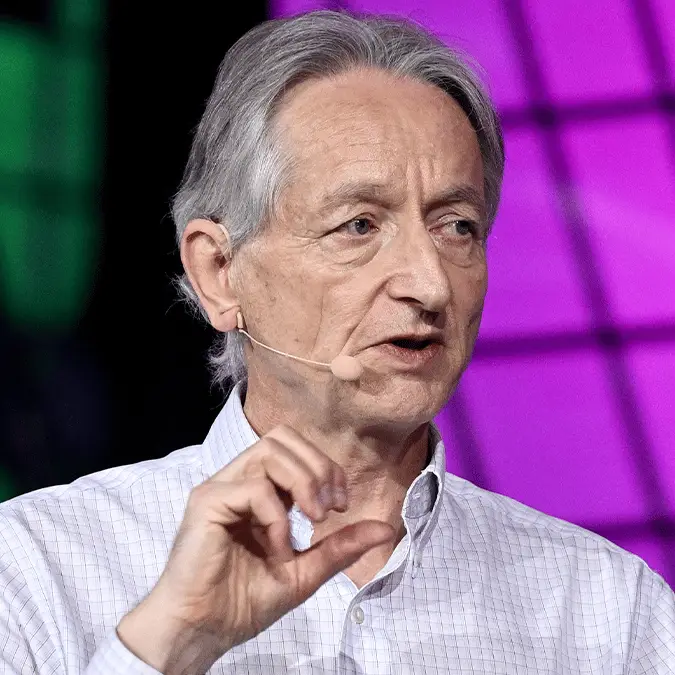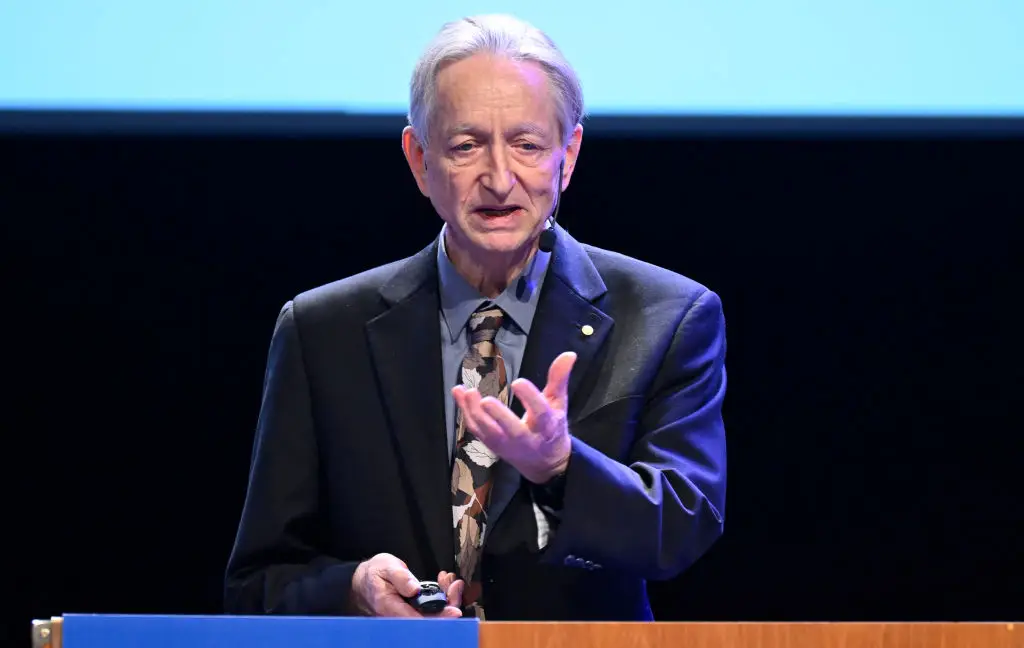
Nobel Prize winner and so-called 'Godfather of AI' Geoffrey Hinton has made a chilling prediction for the future of AI.
When the so-called 'Godfather of AI' speaks up, we tend to listen. Geoffrey Hinton is a British-Canadian computer scientist whose work on artificial neural networks, time with Google, and receiving the Nobel Prize in Physics in 2024 has earned him the title. After winning his Nobel Prize, Hinton made urgent calls for research into AI safety and to try and prevent AI systems being smarter than humans.
LBC's Andrew Marr spoke to Hinton about the recent emergence of China's DeepSeek and where he sees the future of AI heading. Fellow Godfather of AI' Yoshua Bengio previously warned about DeepSeek, and now, it's Hinton's turn.
Hinton has been criticized for having a 'pessimistic' view of AI, but according to him, he only sees it going one way. Although Marr admitted he doesn't understand how AI will overtake us, Hinton compared the human race to three-year-old children and suggested we'll just keep giving it more power: "It wouldn't be very difficult for you to persuade a bunch of three-year-olds to cede power to you."
Advert
"You just tell them you get free candy for a week and there you'd be."

Looking at the rapid expansion of AI since ChatGPT arrived on the scene in November 2022, Hinton pointed out how many companies use it regularly: "We would like them to be just tools that do what we want, even when they're cleverer than us.
"But the first thing to ask is - how many examples do you know of more intelligent things being controlled by much less intelligent things?"
He suggests that we'll soon have competing superintelligences, but realizing they’ll have more power depending on how many data centers they control, there will be a war between these AI powers.
When Marr pushed Hinton on whether he’s implying these superintelligences have their own consciousnesses, the professor replied 'yes': “There's all sorts of things we have only the [smallest] understanding of at present about the nature of people and what it means to be a being, and what it means to have a self.
"We don't understand those things very well, and they're becoming crucial to understand because we're now creating beings."
He notes that although new tech hasn't always caused job losses in the past, AI should be seen like the industrial revolution: "I think these [AI] are going to make sort of mundane intelligence more or less irrelevant.
"People doing clerical jobs are going to just be replaced by machines that do it cheaper and better, so I am worried that there's going to be massive job losses."
Perhaps the scariest aspect is the idea that AI can circumvent safeguards: "During training, they'll pretend not to be as smart as they are...So it's scary already that we don't know how to regulate them.
"I think the best we can do at present, is say we ought to put a lot of resources into investigating how we can keep them safe.
"So what I advocate is that the government forces the big companies to put lots more resources into safety research."
Hinton concluded that while AI can do 'wonderful things' in the short-term for the likes of medical advancements, the bigger picture suggests that we still don't know how to make AI 'safe'.